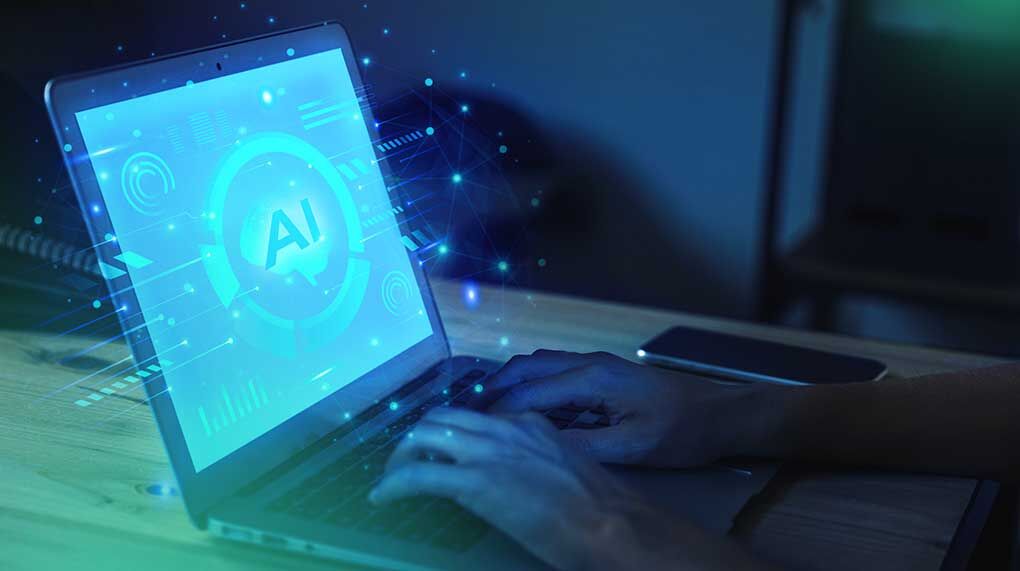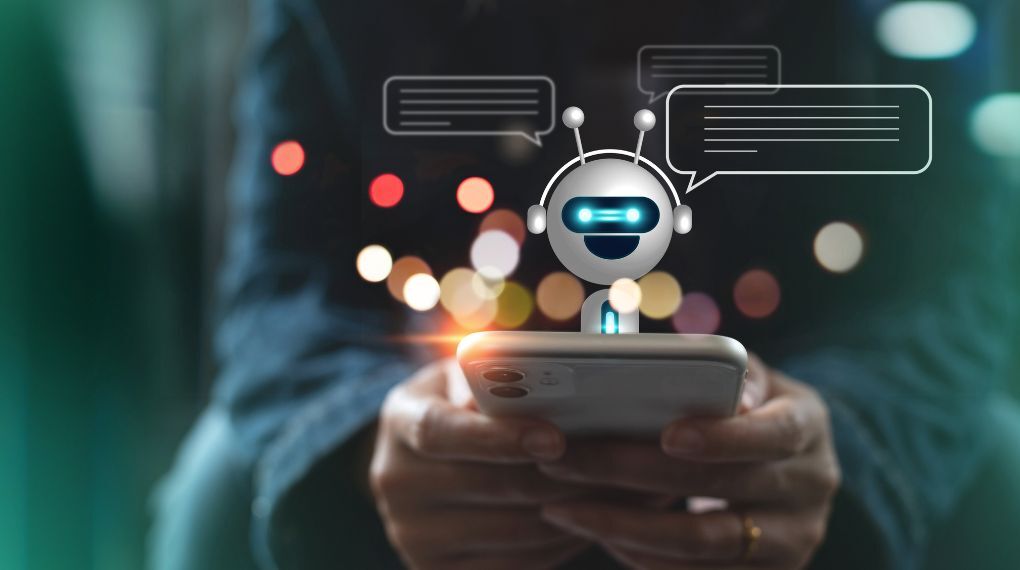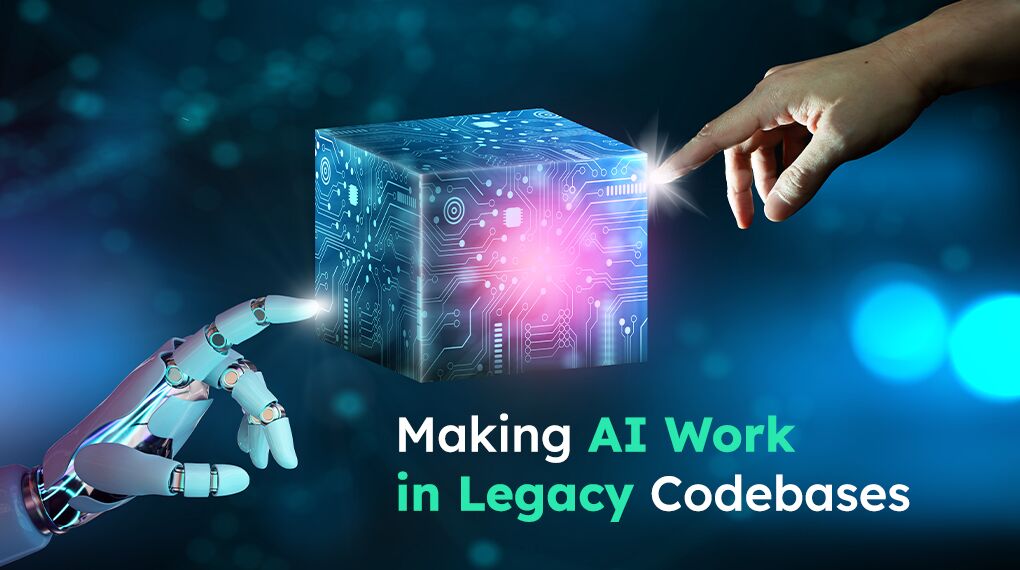The Role of AI in Custom Software Development

Article Contents
Unless you’ve been living under a rock, you’re aware of AI’s astounding growth. OpenAI released ChatGPT in late 2022, starting an AI boom that has impacted almost every major industry on the planet.
Less than two years later, AI seems to be in every major software product, search engine, and IoT product. Even iOS and Android have announced plans to bake AI into their operating systems.
Software development companies have been racing ever since to build competitors to ChatGPT or include AI in their products. And they’re using AI tools to help them do it.
Today, custom AI software development is becoming increasingly mainstream, and for good reason. By integrating AI into custom software solutions, we’re able to create more intelligent, adaptive, and efficient systems than ever before.
One of the most exciting aspects of using AI for software development is its ability to tailor solutions to specific business needs. Whether it’s a recommendation engine for an e-commerce platform or a predictive maintenance system for a manufacturing plant, AI can be used to solve unique challenges in ways that traditional software simply can’t match.
In this article, we look at the expanding role of AI in software development.
The AI Impact on Software Development
Let’s start by answering the most common concern about AI’s impact: No, it’s not going to replace software developers. While AI has many benefits for accelerating the development process, it’s not sophisticated enough yet to replace actual human developers.
However, it may change the way they work. Many coding teams have already started using custom AI software development tools to help them complete tasks more efficiently. By offloading repetitive tasks to AI, developers have more bandwidth to focus on higher-level problems.
Code Completion and Generation
AI-powered code completion and generation tools assist developers in writing code more efficiently and accurately. These tools can be broadly categorized into two main functionalities: code completion and code generation.
AI code completion tools are designed to predict and suggest the next part of a code snippet as a developer types. These tools analyze the context of the code being written, including variables, functions, and data types, to provide intelligent suggestions.
These tools help developers increase their productivity by reducing the time and effort needed to write code. They also help minimize coding errors by suggesting syntactically correct and contextually appropriate code. For less experienced developers, AI code completion tools can serve as a learning aid by providing guidance and recommendations.
AI code generation tools go a step further by automatically generating entire code snippets or functions based on user-provided descriptions or prompts. These tools use advanced language models and generative AI techniques to produce code that aligns with the specified functionality.
Developers can describe what they want the code to do in natural language, and the AI tool generates the corresponding code. These tools can suggest code snippets, complete functions, and even entire programs, streamlining the coding process. They support multiple programming languages and can handle various coding tasks, from simple scripts to complex applications.
Bug Detection and Fixing
Another significant AI impact on software development is its ability to detect and fix bugs, leading to improved code quality and reduced debugging time.
AI-powered tools scan code for errors, analyzing patterns and execution paths to detect anomalies that may indicate bugs. AI is significantly faster at this than humans and can uncover issues that manual testers might overlook.
By learning what constitutes normal behavior in a codebase, AI can flag deviations that suggest potential bugs and identify issues before they escalate. AI systems can also analyze historical data to predict where bugs are likely to occur in future code changes. This helps developers address potential problems before they manifest.
Some AI tools even provide specific recommendations for fixing identified bugs. For instance, platforms like Railtown.ai offer root cause analysis and prioritize bugs based on their impact, helping developers focus on the most critical issues first.
AI tools can adapt testing strategies in real time based on code changes, ensuring that new code doesn’t introduce additional bugs. This continuous integration of testing and development helps maintain software quality throughout the lifecycle.
Automated Testing
Automated software testing is nothing new, but AI offers new ways to make it faster and more effective. AI can automatically generate test cases and scenarios based on application behavior and user flows. This reduces the manual effort required to create comprehensive test suites and improves test coverage.
AI-powered tools can also dynamically update and fix broken test scripts when the application under test changes. This “self-healing” capability greatly reduces test maintenance efforts and keeps test suites running smoothly as applications evolve.
Through the use of computer vision and image recognition, AI tools can detect visual UI bugs, layout issues, and inconsistencies that traditional automated tests might miss.
Some AI tools analyze historical test data to predict areas of the application that are more likely to contain bugs, allowing testers to focus their efforts more effectively. AI can also optimize test execution by prioritizing tests based on risk, impact, and previous results. This helps reduce overall test execution time and focuses on the most critical areas.
AI systems can learn from each test cycle, continuously improving their ability to generate, execute, and maintain tests over time. Additionally, AI solutions can generate realistic and diverse test data sets, improving the quality and coverage of tests while reducing the time spent on manual data creation.
While AI can greatly enhance testing, human expertise is still crucial for interpreting results, making strategic decisions, and handling complex testing scenarios that require contextual understanding.
Project Management
AI for software development project management improves efficiency, decision-making, and overall project outcomes. By using AI to automate repetitive and time-consuming tasks such as scheduling, reporting, and task assignments, project managers can better focus on more strategic activities.
With the ability to analyze vast amounts of historical project data to identify patterns and trends, AI enables project managers to make data-driven decisions. And with the ability to anticipate potential risks and outcomes, AI helps in planning and resource allocation, ensuring projects stay on track and within budget.
These predictive capabilities can also help identify and mitigate risks by analyzing network patterns and recognizing anomalies. For instance, AI can help detect cybersecurity threats or code quality issues early in the development process, allowing project managers to address these problems proactively.
AI tools provide real-time analytics and insights into project performance, allowing managers to monitor progress and make adjustments as needed. This capability also ensures that project stakeholders have access to the most current information, facilitating timely decision-making.
Similarly, AI can optimize resource allocation by analyzing workloads and team performance. This ensures that tasks are assigned to the most suitable team members, improving efficiency and project outcomes.
The integration of AI in project management not only streamlines processes but also enhances decision-making capabilities, allowing project managers to deliver projects more efficiently and effectively. As organizations increasingly adopt AI tools, the potential for improved project outcomes continues to grow, making AI an essential component of modern project management practices.
Challenges of Custom AI Software Development
The AI impact on software development is undeniable, but it’s not without its challenges. Development teams need to stay on their toes and continuously update their skills to keep pace with AI advancements.
Developers also need to avoid overreliance on AI tools. They should be used judiciously and complemented with human expertise to ensure high-quality and secure code.
There’s also the question of how AI will affect job roles in the industry—while it’s creating new opportunities, it’s also automating some tasks traditionally done by junior developers. While this may help streamline teams in the short term, it will likely make it difficult to replace senior developers as they churn, resulting in the loss of internalized knowledge.
Embracing the AI Revolution in Software Development
As we look to the future, it’s clear that AI will play an increasingly central role in custom software development. To stay ahead of the curve, development teams must stay updated on the rapid advancements in AI, experiment with AI tools, and consider how the technology can enhance the software solutions they’re building.
AI is a tool—a powerful tool, but a tool nonetheless. It cannot replace human expertise, creativity, and problem-solving skills. It can, however, help us create better software faster and more cost-effectively than ever before.
At Taazaa, we believe humans deserve better software products. We’re a custom AI development company that leverages the latest tools and technological advancements to create solutions that streamline your operations, boost your business, and wow your customers. Contact us today!
FAQs

David Borcherding is the Creative Lead at Taazaa. With over 20 years of experience in both B2B and B2C marketing, he is well-versed in print, web, and social media marketing,

Subscribe to our newsletter!
Get our insights and updates in your inbox.
Thank you! Your submission has been received!
Oops! Something went wrong while submitting the form.












.svg)






